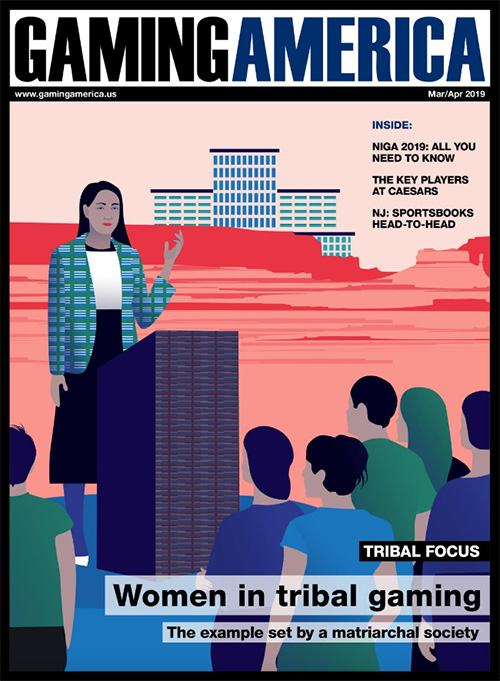
Indian nations could be at the forefront of online gaming and embrace new players despite a setback in Michigan, according to Peter Causley, founder and CEO of slots provider Lightning Box
A key stumbling block to tribal leaders setting up online casinos in the past has been the inability of new state online gaming laws to satisfy the needs of both commercial and Indian gaming concerns.
Legislation passed in Michigan just before Christmas looked set to allow statewide online gaming for both parties before it was later vetoed by their outgoing Governor. This would have given them the confidence to adopt the internet wholeheartedly, knowing that critical mass had finally been reached. It also showed that agreement can be met to satisfy a wide spectrum of interests.
The Pala, Mohegan and Seminole Hard Rock tribal ventures are already part of New Jersey’s emerging online gaming market of course, but Michigan would have been the first to open with the backing of tribal nations, and with tribal gaming present from the outset. Sadly, we’ll have to wait.
Elsewhere, the major hurdle for the tribes to overcome in the pursuit of online gaming has been the fear of its potential effect on their existing bricks-and-mortar casinos. But if New Jersey’s experience is anything to go by, these should now be allayed. Established in November 2013, regulated online gaming has been live in the state for five years and has not only grown gaming in the state overall, but had a positive effect on the land-based venues too.
As a result, the time has come for a concerted push by the tribes towards online gaming. Take a look around any gaming floor in the US, tribal or otherwise, and you will see an ageing population that is declining quicker than it is being replaced. As player numbers decline, so does revenue. As a result, there is greater need than ever to reach out to the younger, more internet-savvy US players, who we know are playing social casino on their phones, but have yet to be tempted by the land-based casino environment.
Showing us the way is the food industry, and restaurants in particular, who are facing down the threat of customers shunning their tables by embracing innovation. Modern consumers with disposable income are eating less home-cooked food than ever before, but they are not necessarily visiting these restaurants to get their sustenance. Instead, they are turning to mobile apps like Uber Eats, DoorDash and Hungry House to order the same food and have it delivered.
Showing us the way is the food industry, and restaurants in particular, who are facing down the threat of customers shunning their tables by embracing innovationWhat is to stop tribal casinos adopting the same model to deliver their product to a similar customer base? After all, the same people who don’t have the time or inclination to visit even their favourite restaurant more than once a week are not going to be paying multiple visits a week to their local casino either.
One of the advantages of tribal casinos, as obvious as this point is, is that they are often the only casino available for miles around. Many of them are also huge and attracted vast numbers in the past. The likes of the Mohegan Sun and Foxwoods casinos in Connecticut spring to mind, with 7,000-8,000 gaming machines each. The large tribes in California are no different and have enormous potential to broaden their player base via online gaming.
Here at Lightning Box, we have been making games for the US land-based markets for years. Most of our revenue these days comes from online gaming in Europe, in truth, but we’ve also embraced the US online gaming and social casino space, as one of the few slots suppliers having a crack at pulling off this three-card trick. The point is we have shown that, with the right expertise, games can be successfully created in different verticals.
For the tribes, a similar opportunity is currently presenting itself from online gaming, with a whole generation of tech-savvy consumers waiting to have the opportunity to sample their product. As the US players’ love of social casino has shown, they will play these games when it is convenient for them. Real-money gaming on their mobile devices would be no less attractive.
It would be naive to think there aren’t still significant hoops to jump through for many of the tribes to do this. For one, a number of states are still very reticent about the very idea of online gaming. But for those with a more open mind, there is now a commercial incentive that could go a long way to offsetting feared terrestrial revenue losses and suggests an examination of the possibility is much more relevant than before.

